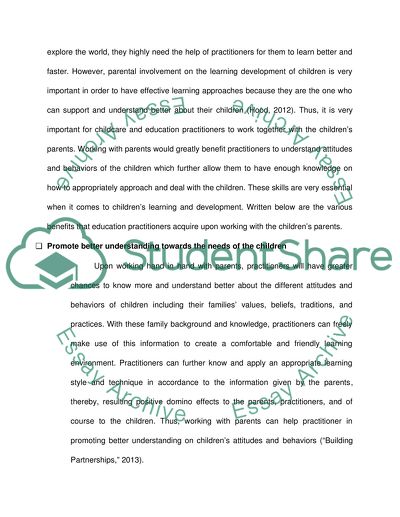Cite this document
(“Reflective Paper: Learning and development of children Essay”, n.d.)
Retrieved from https://studentshare.org/education/1497876-reflective-paper
Retrieved from https://studentshare.org/education/1497876-reflective-paper
(Reflective Paper: Learning and Development of Children Essay)
https://studentshare.org/education/1497876-reflective-paper.
https://studentshare.org/education/1497876-reflective-paper.
“Reflective Paper: Learning and Development of Children Essay”, n.d. https://studentshare.org/education/1497876-reflective-paper.


